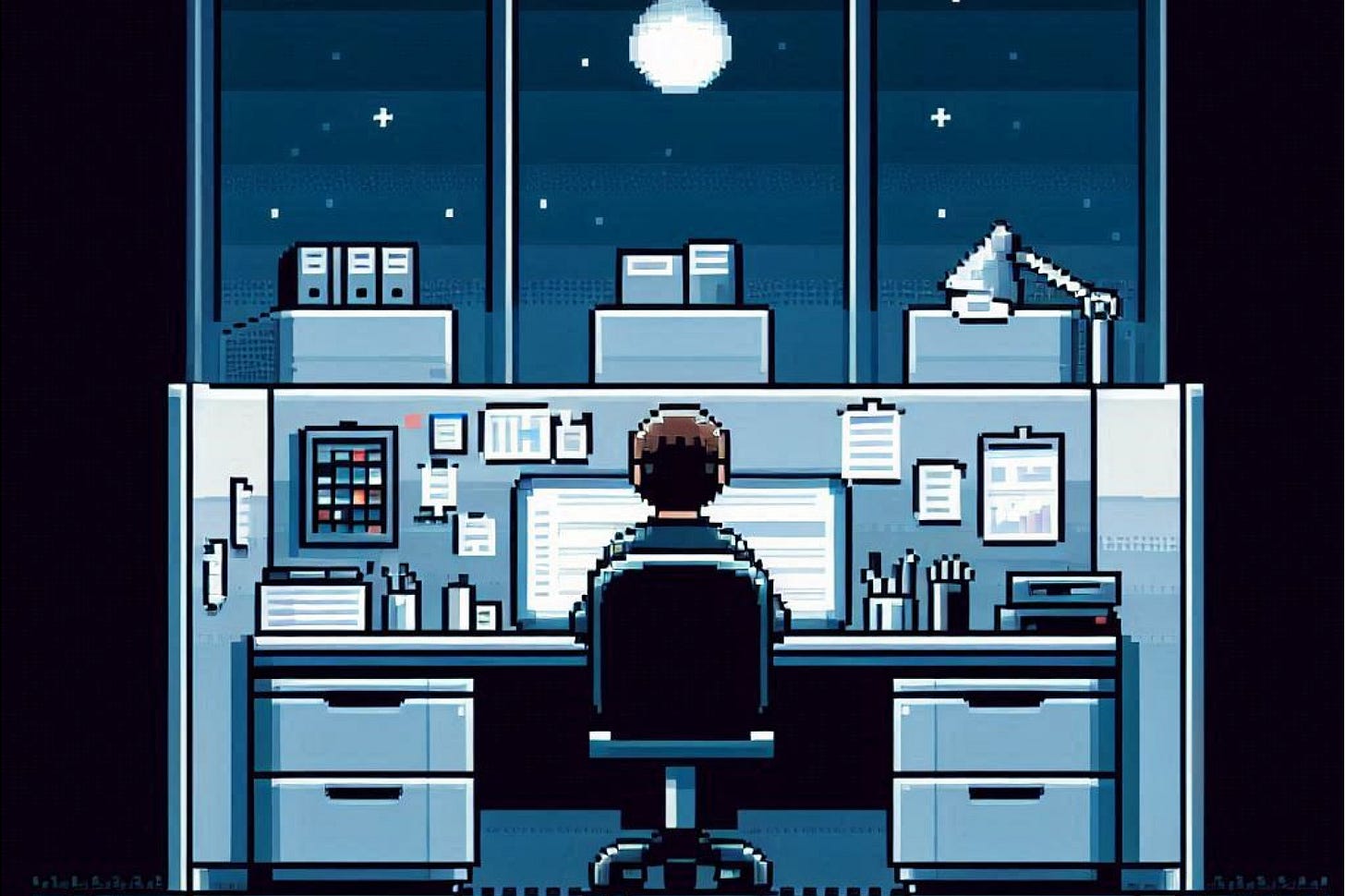4 paradigm shifts for writers-in-waiting to reframe your day job and find joy in both your work and writing
These 4 mindset fallacies are holding you back from living a deep life.
What if your day job was actually the fuel for your writing dreams, not the obstacle?
It's easy to fall into the trap of viewing your job as something holding you back, rather than a tool to achieve your goals. Non-fiction author and productivity expert Cal Newport in his podcast The Deep Life discusses 4 fallacies that cause people to hate their job.
Cal recommends viewing jobs in terms of flexibility, autonomy, and compensation. Your goal as a writer is to achieve the balance you need to continue living while making time for your writing.
Avoiding these traps will help you choose a job that is more compatible with your ideal lifestyle, making for a happier, deeper life.
Fallacy #1: The Passion Fallacy
Were you told when you were growing up to follow your passion?
This is really bad advice. Knowledge work has the same frustrations, regardless of industry. Even if you work for the back office of the Boston Red Sox, you are still writing emails, editing spreadsheets, and attending meetings. Asking your job to give you purpose will only result in a feeling of disappointment.
If you think being a full-time writer is filled with moments of elated inspiration, think again. Most writers are filled with self-doubt and suffer from imposter syndrome.
Most writers will write for one or two of these reasons:
Money
Status (traditional publishing)
Contribution (value creation through original ideas)
Scaling their online business (thought leadership, consulting)
Be honest with yourself on why you want to write, then optimize for your goal.
Fallacy #2: The Grand Plan Fallacy
Does this sound familiar:
I'll quit after I make partner
I'll quit once my kids are in college
I'll quit once we ship that big project
Achieving your next big milestone will only move the goal post. In this digital age there is 0 friction when it comes to creating more work for people to do.
Don't wait.
If you hate your job then start considering your options now.
Fallacy #3: The Bohemian Fallacy
I often fantasize about giving up my programming job to become a part-time clerk at my local library.
In reality, it's difficult to make enough money to cover your expenses with an assortment of odd jobs, especially here in the San Francisco Bay Area. A full-time job comes with consistent paychecks, allows me to plan for the future by budgeting, because I know how much I'll be making.
Cal warns us not to get into entrepreneurship simply to escape the rat race. To succeed as an entrepreneur it requires niche skills and a unique POV.
Fallacy #4: The FU Money Fallacy
I was first introduced to the concept of FU money in 2016 when I read the Incerto Series by Nassim Nicholas Taleb. I thought it was the coolest thing ever, because he makes it sound really cool.
If you are new to the concept, the idea is you can say "F U" to anyone without having to worry about the consequences. Many people, in tech especially, think they'll be set for life when they reach some number from a FIRE calculator.
In reality:
Having lots of money creates its own sets of problems.
Most people keep working after getting massive windfalls.
As people, we are hardwired to be useful to others, jobs fulfill this outlet for most people.
Start living the life you want to live today.
The next step to finding a job that fits your lifestyle is to figure out what your ideal life looks like. Dr. Martha Beck in her book, The Way of Integrity has a wonderful visualization exercise to help. (You can also learn about it on the Huberman Lab podcast.)
What makes the technique so powerful is by visualizing your ideal day, you engage your visual cortex. The visual cortex is a different part of your brain than your prefrontal cortex, the primary region for executive function and decision making. In effect, the visual cortex can help you access the subconscious part of your mind.
It's a wonderful exercise and one that I come back to often. I experience a feeling of warmth and spaciousness when I visualize my ideal day. It has become my north star.
You may surprise yourself when what you see is not quite what you expected.
Postscript on the Economics of Selling Books
Selling books is a terrible way to make money. It's funny because books have the power to change people's lives, they have certainly changed mine.
As a product, books have some major constraints:
Price anchored to ~$20
People buy your book only once
You don't get paid consistently while writing them (and it takes a long time)
Even successful fiction writers like George Saunders, have day jobs as teachers. George Saunders makes way more money with his Substack than he does with the sales of all of his fiction books and his teaching salary, combined (by a large margin).
Yet, he still works as a writing professor at Syracuse University (my hometown, go 'cuse).
Every year, people spend less time reading books and more time online consuming short-form content. For writers in the 21st century, you will need to do something in addition to writing books.
Happy grinding out there writers.


